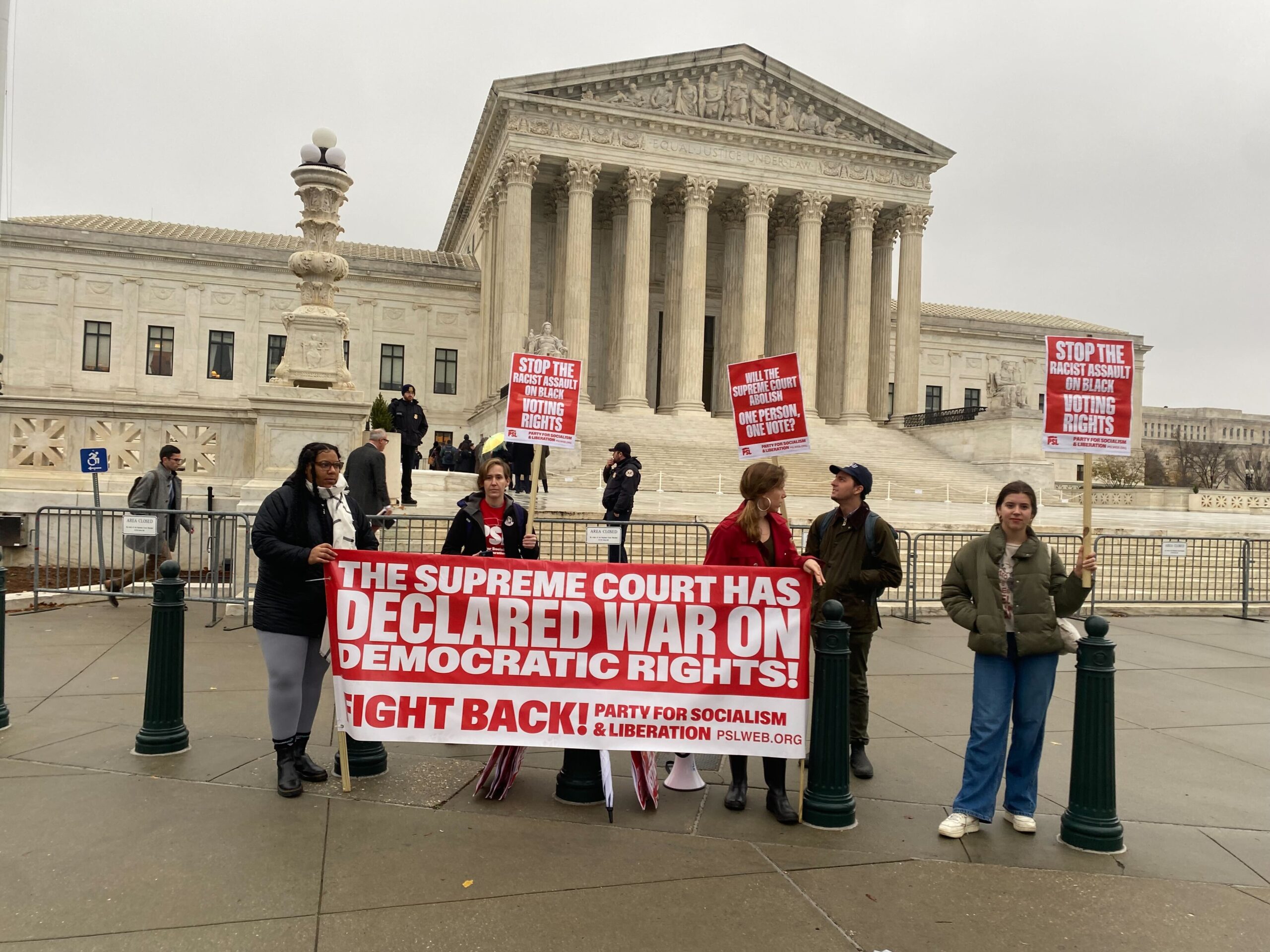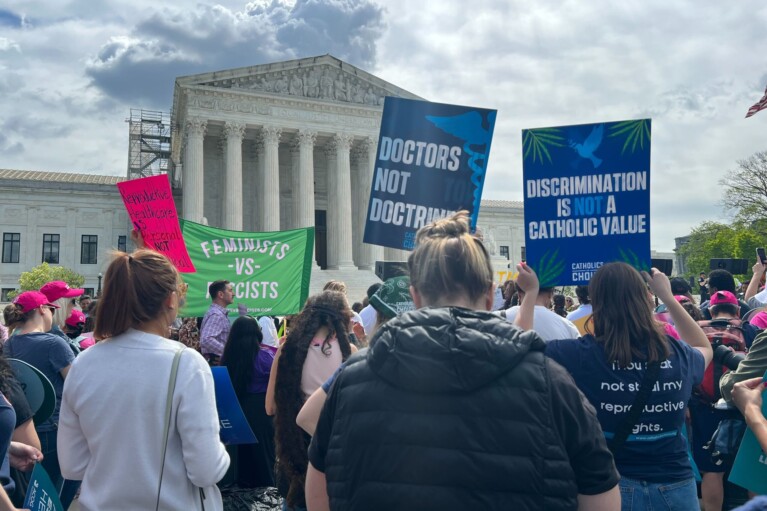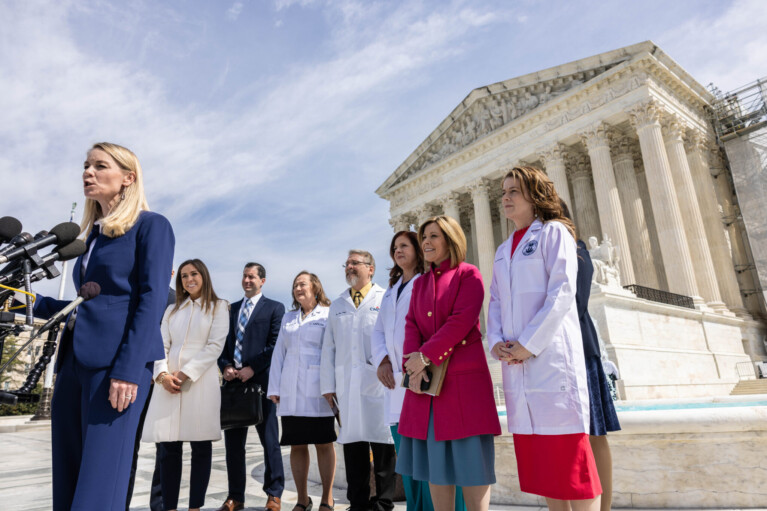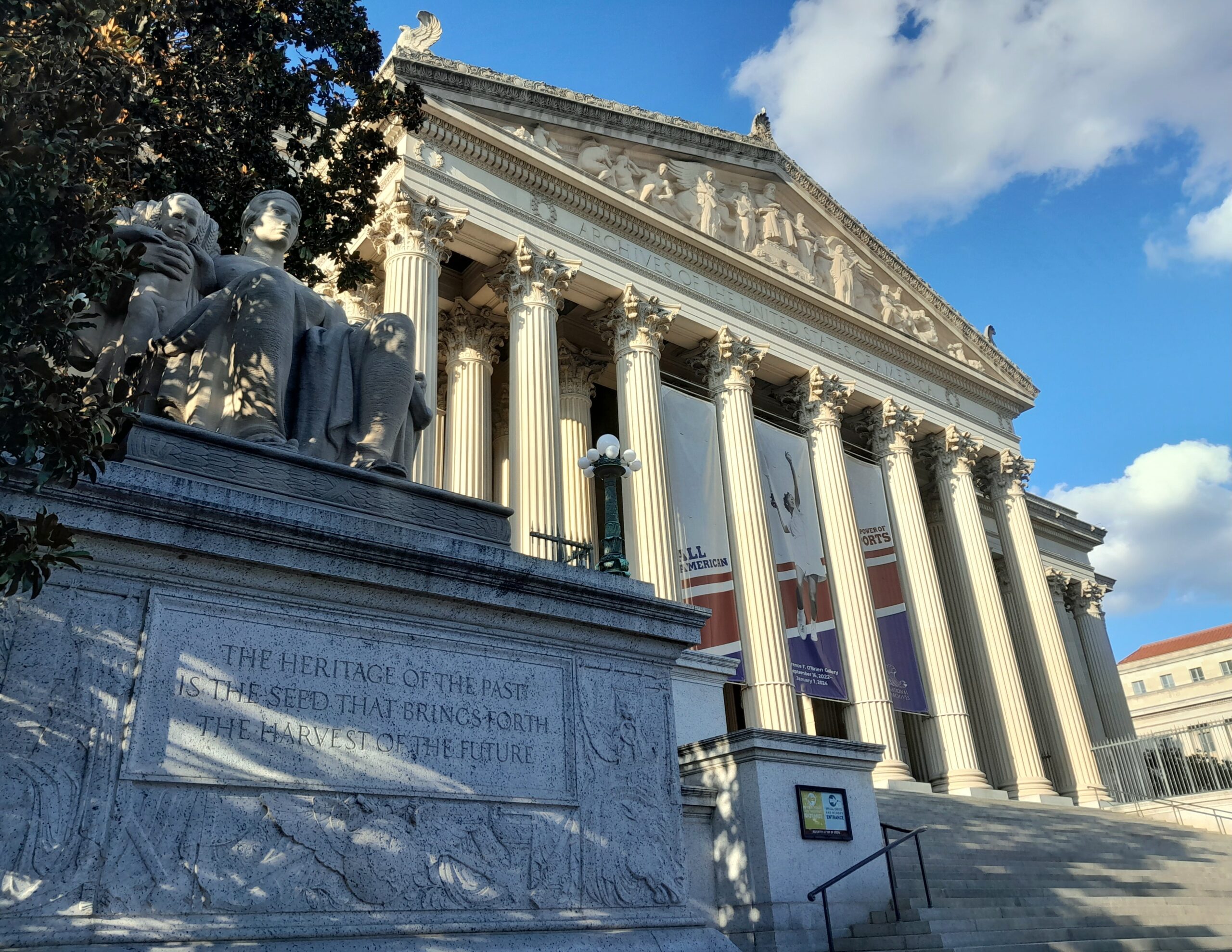Future of U.S. election law at stake as Supreme Court hears North Carolina case

North Carolina Republicans appeared to have at least three of the U.S. Supreme Court’s conservative justices on their side Wednesday in a case that could determine the future of elections nationwide, and leave decisions about federal elections in the hands of state legislatures and beyond the reach of state courts.
The Supreme Court heard oral arguments in an appeal of a North Carolina Supreme Court ruling that threw out congressional districts drawn by the Republican-led legislature. The state’s high court decided in February that the redistricting plans constituted a partisan gerrymander that violated the state constitution.
North Carolina Republicans base their case on something called the “independent state legislature theory,” which holds that the U.S. Constitution’s Elections Clause makes legislatures the sole authority over federal elections.
“It is federal law alone that places substantive restrictions on state legislatures performing the task assigned them by the federal constitution,” said David H. Thompson, the lawyer representing the GOP legislators, during Wednesday’s arguments.
Justices Clarence Thomas, Neil Gorsuch, and Samuel Alito seemed to agree with Thompson, indicating their belief that the federal Constitution is enough to protect voters and state constitutions shouldn’t play a role in election matters.
The oral arguments lasted almost three hours, twice as long as the court had scheduled, with multiple justices seeking clarifications on how Supreme Court precedent impacts this case and how the Elections Clause of the U.S. Constitution should be interpreted.
‘Blast radius’ of a ruling for GOP lawmakers highlighted
Three attorneys — former Acting Solicitor General Neal Katyal, former Solicitor General Donald Verrilli, and current Solicitor General Elizabeth Prelogar — argued on behalf of the respondent voters, voting rights groups, and the U.S. Department of Justice, who oppose the North Carolina Republicans’ theory.
The opponents, who brought the original gerrymandering lawsuits, say the North Carolina Republicans’ argument relies on a misinterpretation of the Constitution that ignores historical fact.
The court’s three liberal justices seemed to agree with the opponents. An endorsement of the North Carolina Republicans’ position would have far-reaching effects, said Justice Elena Kagan.
“This is a theory with big consequences,” she said. “It would say that if the legislature engages in the most extreme forms of gerrymandering, there is no state constitutional remedy for that, even if the courts think that that’s a violation of the Constitution. It would say that legislatures could enact all manner of restrictions on voting, get rid of all kinds of voter protections that the state Constitution in fact prohibits. It might allow the legislatures to insert themselves, to give themselves a role in the certification of elections and the way election results are calculated.”
She added that the North Carolina Republicans’ proposal “gets rid of the normal checks and balances on the way big governmental decisions are made in this country.”
Katyal, who represented the parties who originally sued over the redistricting plans, warned of the “blast radius” of a ruling in favor of North Carolina GOP legislators in which state lawmaking is unconstrained by a state constitution.
Outside the court on Wednesday, Katyal said that “the checks and balances laced into the Constitution forbid what these challengers are seeking.”
Allison Riggs, co-executive director of the Southern Coalition for Social Justice, told reporters outside the court that the North Carolina legislators’ position during the oral arguments was extreme compared to what they argued in their earlier briefings.
“What I take away from today’s argument is that legislative leadership in North Carolina still wants the North Carolina constitution to be a meaningless piece of paper,” she said.
Conservative attorneys voice concerns
Opponents of the independent state legislature theory have also gained support from conservative lawyers who disagree with it.
“I do not believe there is any support whatsoever in the constitutional text or in the history of the framing of the Constitution that would support the most aggressive version of the independent state legislature theory that the petitioners are arguing for,” J. Michael Luttig, a Reagan administration lawyer and former U.S. Appeals Court judge, said in a webinar Tuesday. Luttig is working with Common Cause, the League of Conservation Voters, and a group of voters backed by the National Redistricting Foundation to oppose the North Carolina Republicans’ arguments.
Though the immediate case at issue before the Supreme Court is about redistricting, North Carolina Republicans have clashed with Democratic Gov. Roy Cooper, Democratic Attorney General Josh Stein and the state Board of Elections over other issues that could be implicated by the court’s ruling, such as the deadline for accepting mail-in ballots.
A ruling for North Carolina Republicans would create a confusing, two-tiered election system, with different rules for federal and state elections, national associations representing cities, counties, and mayors argued in a friend of the court brief.
Other recent rulings, including a 2019 Supreme Court case from North Carolina, Rucho v. Common Cause, seemed to indicate acceptance of the notion that entities other than legislatures have a lawful role in creating election districts. In Rucho, the majority said it would not consider cases about partisan gerrymandering, calling those political questions “beyond the reach of the federal courts.” But the majority opinion, written by Chief Justice John Roberts, also noted that state laws, state constitutions, and independent commissions could offer remedies to partisan gerrymandering.
In his live blog of the oral arguments, voting rights expert Rick Hasen, a law professor at the University of California, Los Angeles, said the divided Supreme Court appears to be “searching for a middle ground to hold that in really egregious cases state courts can violate the federal constitution when they apply state constitutions (or potentially to interpret state statutes) to limit a state legislature in regulating federal elections.”
Specifically, he said that the three justices who appear to be undecided on this case — Chief Justice Roberts and Justices Amy Coney Barrett and Brett Kavanaugh — seem to be looking for a middle ground.
He said he doesn’t believe the court is ready to rule in line with the North Carolina Republicans’ view on the independent state legislative theory, but a partial ruling would still be problematic in allowing the federal government to inject itself into state election disputes.
Voting rights advocates and opponents of the independent state legislature theory remain fearful of what a ruling for North Carolina’s legislators, or even a partial one, could mean for the future of elections.
During a voting rights conference on Tuesday, Republican election lawyer Ben Ginsberg said that a ruling for North Carolina Republicans would “not be good for certainty in elections at a time when the system is under assault.”





 Creative Commons Attribution
Creative Commons Attribution